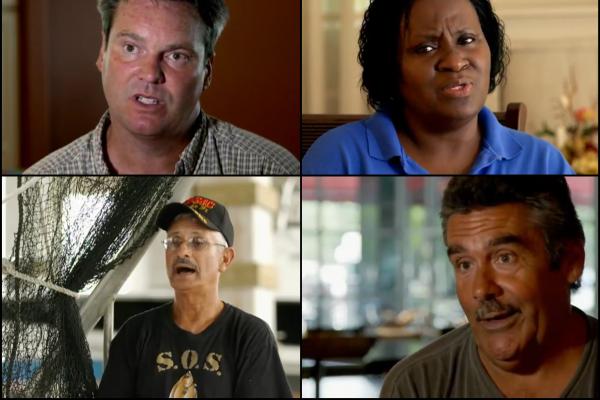Matthew 25 doesn’t say, “As you have done to the middle class you have done to me."
What it records Jesus saying is, “As you have done to the least of these, you have done to me.” Chances are that will never be the central message of political conventions during election years.
But every four years for the last 40 years (even before we were called Sojourners), our community has done what we can to lift up the issue of poverty during presidential elections. While political party platforms have changed, our commitment to the least of these has not.
So it is with that spirit, this election year, that I am proud to present a new short film called The Line.
Written and directed by Emmy-award winning producer Linda Midgett, it chronicles the very real stories of four real people struggling with real poverty in America today.
You’ll meet a banker in the suburban Midwest who used to earn six-figures a year and now, after the economic collapse, must go to a food bank to feed his three kids; a fisherman on the Gulf Coast of Louisiana who has watched his livelihood and his culture wash away in the wake of Hurricane Katrina and a devastating off-shore oil spill; a blue collar guy in North Carolina who worked hard his whole life but lost his job, became homeless, and started over as a restaurant bus boy; and a single mom in Chicago who battles daily to ensure that her son is safe, healthy, and has the opportunity to go to college.
Read the Full Article

